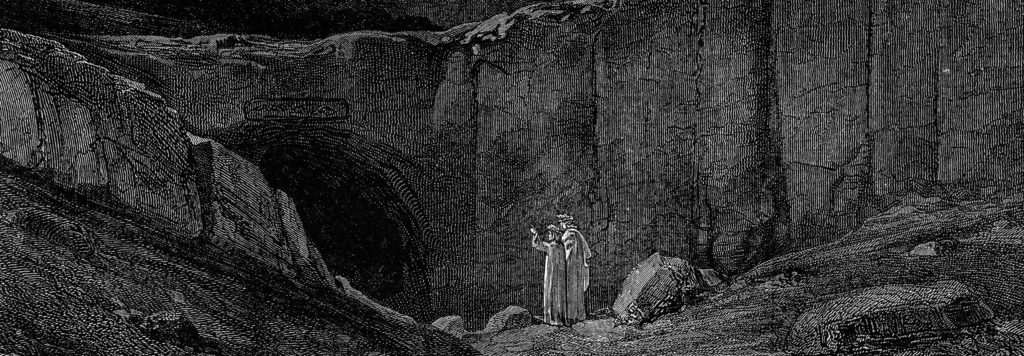Where Hell Begins (Part 1)
The twentieth century has been described as the bloodiest century in human history.
 Two world wars, the Russian and Chinese communist revolutions, Vietnam, Cambodia, and Korea (among others), together with the cultural revolution in the 1960’s and the ongoing ones orchestrated through the internet and higher education, along with legalization of abortion and most things foul and debauched provide hard evidence in support of this claim. For those who do not believe hell exists (and that there are souls in it), it would make one wonder what color the sky is in their world.
Two world wars, the Russian and Chinese communist revolutions, Vietnam, Cambodia, and Korea (among others), together with the cultural revolution in the 1960’s and the ongoing ones orchestrated through the internet and higher education, along with legalization of abortion and most things foul and debauched provide hard evidence in support of this claim. For those who do not believe hell exists (and that there are souls in it), it would make one wonder what color the sky is in their world.
Humanity has done a great job at creating its own hell right here on earth; to think that such could not continue in the afterlife requires no small amount of denial. Only the most hardened atheist or evolutionist will fail to admit that there is something fundamentally wrong with man, and its remedy goes beyond our natural capacity. Perhaps the twentieth century (and the trajectory we are currently on in the twenty-first) merely (merely?!) amounts to more and more radical, destructive, and ultimately futile attempts to disprove the reality of our condition.
Critics will accuse us of reducing the complex problems facing humanity down to a simple cause.
But if we understand something of the origin, we have a good chance to understand and accept its remedy. The rebellion we all feel within us is not supposed to be there, nor can it be satiated and disappear by stoking it; a moment of disordered gratification runs the risk of a more vehement comeback, but that runs against conventual wisdom. Humanity is in a state of rebellion with itself.
The book of Genesis describes in poetic language a rebellion that occurred between our first parents and God. Creature rebels against Creator and so the punishment necessarily must fit the crime: the harmony and order God established within us between our reason, will, and passions was turned upside down.

We are prone to selfishness, self-indulgence and to experience in some way a life absent from God, for, left to our own devices, there is no way back to where we were, a veritable hell for ourselves and others. St. Augustine says it well about original sin: Man sold himself into slavery, but could not purchase himself out of it.
It would do well for our modern world (and the Church in some regards) to come to terms with the reality of original sin. Is there really any better explanation for why we are the way we are? It actually does cover all the bases. The challenge for the modern world, of course, would be the need to admit that God exists and actually has expectations for humanity. That is because sin is committed against someone, it is something personal and thus requires admission, humility, honesty, and mercy for its remedy, all things that come at a cost. These require communication, something that requires effort to do effectively.
Interestingly, leaving aside for a moment the irreligious or anti-religious, these realities are often dodged by those who describe themselves as spiritual, a term that is as amorphous and slippery as is the word nice.
At its root, being spiritual does not carry any responsibility and does not involve an encounter with a personal God who makes demands on us, enabling one to be always okay with the way one is. Having no need for formulated dogma or authority outside oneself, one is permitted to make up his own rules, avoiding any moral impetus to really be better and master oneself.
Being spiritual avoids the hell that comes with a broken or damaged relationship with God and that requires genuine partnership and cooperation with Him to repair, something He desires more than we can imagine.
There are lots of spiritual people out there. And they are in danger of trading a hell we are supposed to overcome for the hell that will never end. They avoid the wondrous truth about the God we all need.

But Catholics can fall into this camp, too, at least practically.
Are we aware of the arrangement God has made for our salvation, and do we let that penetrate deeper than the skin? If not, it is time to call upon the Holy Ghost to stir up some fortitude about this.
To be continued….
December 14, 2020








